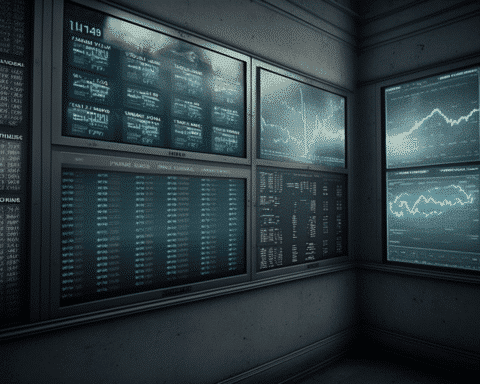On Tuesday, Asian shares saw a mixed performance in quiet trading as investors kept a close eye on the latest economic data and awaited the next moves from the Federal Reserve. The Nikkei 225 in Japan increased by 0.4% to 28,336.98, while Australia’s S&P/ASX 200 rose by 0.5% to 7,366.90, and South Korea’s Kospi gained 0.3% to 2,471.02. The Hang Seng in Hong Kong jumped 1.2% to 20,850.18, and the Shanghai Composite slightly rose by 0.2% to 3,327.35.
The Reserve Bank of Australia raised its key rate target by 0.25 to 3.6%, which aligned with expectations. The bank stated that despite the high global inflation, inflation in Australia has started to subside.
“Traders are currently weighing the impact of economic data and awaiting important events that could influence equity markets in the coming days,” said Anderson Alves at ActivTrades.
On Wall Street, stocks had a mixed finish, with the S&P 500 rising 0.1% to 4,048.42 after a four-week winning streak, the Dow Jones Industrial Average rose by 0.1% to 33,431.44, while the Nasdaq composite slipped by 0.1% to 11,675.74.
The stock market’s performance this year has been impacted by high inflation and the Federal Reserve’s response to it. At the beginning of the year, the stock market rallied, and bond yields declined as the hopes rose that cooling inflation would lead the Fed to hold off from raising interest rates. However, stronger-than-expected economic reports raised concerns about inflation not cooling as smoothly as anticipated.
While this eased worries about a potential recession, it also led to Wall Street increasing its rate hike forecasts for the Fed. Higher interest rates can curb inflation but negatively impact stocks and other investments and increase the risk of a future recession.
On Wall Street, technology stocks performed well, as they tend to benefit from lower interest rates, which can increase demand for high-growth companies. Apple rose by 1.9%, and Microsoft increased by 0.6% to be the two largest contributors to the S&P 500’s performance. Tesla, on the other hand, fell by 2%.
This week could see significant market movements, with several events on the calendar, including Fed Chair Jerome Powell’s testimony before Congress on Tuesday and Friday’s release of the latest monthly jobs report. The Fed’s next interest rate decision is expected later this month, and the jobs report and inflation data across the economy will heavily influence the outcome.
The Fed has increased its key overnight rate from virtually zero at the start of last year to a range of 4.50% to 4.75%, marking the fastest set of hikes in decades. Last month, the Fed reduced the size of its interest rate increases and emphasized progress in lowering inflation. However, recent data on inflation and the economy has been hotter than expected, causing Wall Street to prepare for at least three more hikes and the possibility of the Fed increasing the size of its rate increases.
In commodity trading, benchmark U.S. crude increased by 22 cents to $80.68 a barrel, while Brent crude rose by 22 cents to $86.40. The US dollar rose to 136.03 Japanese yen in currency trading, and the euro was at $1.0691.
In addition to the Fed’s interest rate decision, investors will pay close attention to the outcome of the U.S. stimulus package negotiations. The proposed package includes a $1.9 trillion aid package to support individuals and businesses affected by the pandemic. The package includes direct payments to individuals, extended unemployment benefits, and aid to small businesses. The outcome of these negotiations could significantly impact the stock market and the broader economy.
Another factor that could impact the market is the bond market, which has seen a sharp rise in yields in recent weeks. The rise in yields can increase borrowing costs for businesses and individuals, slowing economic growth. The Fed has stated that it closely monitors the bond market and will take action if necessary to ensure stability.
Investors closely monitor the Fed’s interest rate decision, stimulus package negotiations, and the bond market, which could all significantly impact the stock market and the broader economy. Traders will look for clues on how these events could impact the market in the coming days and weeks.




